 Last year I published something like 17 books. I honestly can’t remember the exact number off the top of my head. I think part of my brain is trying to forget the mad rush that was 2011. Out of those books, five were backlist (already written), seven were co-authored (I didn’t do all the work). But five of them were written in 2011. The average author writes one, maybe two novels in a year. When readers and other authors hear that I write more than double that amount, the next thing out of their mouth is, “How do you write so many books?”
Last year I published something like 17 books. I honestly can’t remember the exact number off the top of my head. I think part of my brain is trying to forget the mad rush that was 2011. Out of those books, five were backlist (already written), seven were co-authored (I didn’t do all the work). But five of them were written in 2011. The average author writes one, maybe two novels in a year. When readers and other authors hear that I write more than double that amount, the next thing out of their mouth is, “How do you write so many books?”
Well, today, I’m revealing my secret.
There are some obvious steps that come before the real meat of what I have to say. First, you need a good subject matter. Something that really holds your interest and gets you excited. If you’re bored, at all, with what you’re writing about, it’s going to slow you down. Similarly, you need great characters. When you sit down to write, it should feel like sitting down with friends. Even your antagonist can be someone you look forward to hanging out with for a day.
Last, but not least, you need time. I write for a living, so I have time. BUT I only work Monday to Friday, 9am – 5pm. Those eight daily hours include at least an hour of replying to e-mails, 45 minutes for lunch and The Daily Show, an hour (sometimes more) of marketing and typically another random chunk of time spent chatting with my three homeschooled kids. Actual time spent writing is 4 – 5 hours tops. That’s just 20 – 25 hours a week. In the past five days, working those hours, I wrote 20,000 words.
If you have children and a job, I sympathize with you. Finding 4 hours a day will be a challenge, but if you cut out a TV show or two, 2000 words a day (still more than many professional authors) is possible. And before you complain, I know people who do this. If you’re single, or have no kids, you have no excuse. You think you’re busy…but you’re not. Ask anyone with children.
So, once you’ve got the great idea, characters you love, and you have dedicated a chunk of daily time, you’re ready for the big secret.
Ready?
Here it is.
Daydream.
That’s it. Sounds simple and a little fruity, but it’s actually quite difficult. Still a little fruity, though. I’m not talking about a random thought involving your story. I’m talking about pushing everything out of your mind—bills, your jackass boss, the guy who cut you off on the road, screaming children, the last episode of Fringe, that girl (or guy) at work who’s been making eyes at you—EVERYTHING. If your head isn’t clear, you won’t be able to daydream on the level I’m talking about.
Close your eyes, relax, ignore your crazy life and start thinking about your story. Start small. Some detail about a scene you plan to write the following day. Maybe a piece of dialogue. Visualize the scene. Run through it. Then, repeat. Run through the scene again. Each pass brings out more details. Here’s where the magic happens. Without you fully realizing anything has changed, the scene will be playing out without your conscious mind driving it. Characters will say things you hadn’t planned on. Plots will develop in unexpected ways. The world you’ve created will come to life. This is daydreaming. Everything before is just thinking. If you do it enough, you’ll remember the scene like you were there and the writing will flow faster than you could ever imagine.
This is where my speed comes from. I don’t have to think about what I’m going to write. It’s already in my head, ready to be typed into the real world. This is how I write about 1000 words an hour, sometimes more. At this speed, writing 20 – 25 hours a week, if I didn’t take time to work on other projects between books, I could write 10 – 12 books a year. Yikes. If you only have 10 hours a week to write, but can use daydreaming to speed up the process, you could write 4 – 6 novels in a year!
Sounds great, you say, but time is short! When am I going to find time to daydream?
I’ll start with the few prime times to daydream. These are probably the times you spend dwelling on your day, problems, etc, so it’s going to take some practice to ignore those things.
1. In the shower. Sounds hokey, but try it. Wash as fast as you can. Then stand under the hot stream of water, close your eyes, direct your mind to your story and let your mind drift. Some of my best ideas come while I’m in the shower.
2. While falling asleep. As your mind gets closer to sleep, your imagination is free to wander. And if you fall asleep while daydreaming a scene, there are two side benefits. The first is that people sometimes dream about the last thing they think about before falling asleep. Actual dreams can be the ultimate daydream, though they can be a little trippy, too. But I’ve based several books on actual dreams, including one of my bestselling books, TORMENT. The other benefit is that your book, and that scene, will probably be the first thing you think about upon waking, which brings us to…
3. When you wake up. I don’t know many people who launch out of bed upon waking, or when the alarm goes off—if you’ve set your alarm for the last possible moment, set it ten minutes earlier. If you can lie in bed for 10 – 30 minutes after waking, your mind is in the perfect near-dream state to daydream effortlessly. You have yet to fill your mind with fresh distractions.
4. When you’re sick. Sounds horrible, right? But when you’re sick and just laying around, your mind is in a sleepy state that’s similar to just waking up. A few weeks ago, I got sick. Really sick. Laid down in bed and let my mind wander on a three word story idea that my son gave to me. By the time I dragged myself out of bed an hour later, I had the entire story worked out, a title, a book cover idea and several key scenes. The next day I wrote up a summary, created a book cover and sent the idea to my agent (before writing 4000 words). His response to the hour long daydream session was, “I think this is better than 70% of what publishers put out,” and a strong encouragement for me to write the book.
Now that we’ve covered the easy opportunities for daydreaming, let’s move to the less obvious. When you become a practiced daydreamer, you’ll develop the ability to let your mind go and drop into a scene like you’re watching a movie. It’s as easy as…watching a movie. I’m able to stare off into space, with my eyes open, jump into a scene and watch it play out. This is often how I write. I’m not even seeing the screen, or the words I’m typing. I’m simply writing what I’m seeing and experiencing. I wince at the horrible things, laugh at the funny, cry at the sad and jump at the surprises that even I sometimes don’t see coming. ANTARKTOS RISING fans will remember Jacobson’s fate. That wasn’t planned. I had no idea it was coming until it happened.
A word of warning. When you become really good at dropping yourself into a daydream, it can happen without you realizing it. I’ve drifted during conversations, while trying to read or while watching a movie. But the worst is when you’re driving. I’ve gotten good at not daydreaming while driving, but long trips and lots of monotonous highway can be dangerous. I’ve narrowly avoided a few accidents that would have been caused because I was in Antarctica at the time. So don’t daydream and drive.
On the bright side, daydreaming works for cover design, video trailer creation, speeches and anything else you need to create. But don’t take my word for it, here’s a NY Times article on the benefits of daydreaming. This video from the New Yorker Festival is also interesting.
There you have it. That’s my secret. In some ways I’m a professional daydreamer. And if you want to write—or write more, next time you’re sneaking some Angry Birds at work, try daydreaming instead. When you get home, take a shower and daydream some more. If you have to put your little one to sleep, daydream while you’re lying next to him or her. When you sit down to write at 9pm, the 500 words you normally struggle with could be 2000. At the beginning of March, I was given 40 days to write an 82,000 word novel. I did it in 25. You can, too.



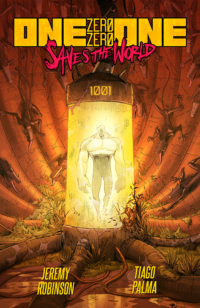

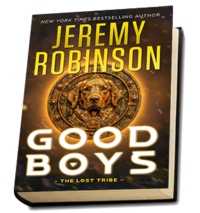
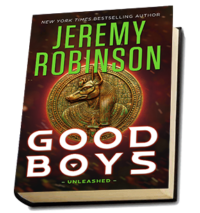
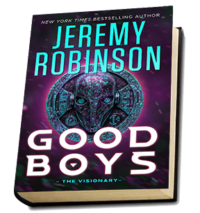


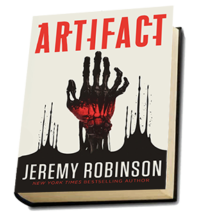

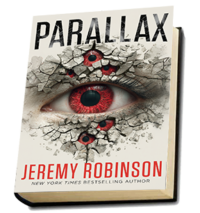

Good article. I’m not nearly as prolific as you, but I do use some of the same techniques. I find the best time for me to daydream about a story is when walking the dog. It’s quiet, few distractions and it tends to make the walk longer without feeling like effort, which is good for me and the dog. I’ve come up with some of my best ideas on dog walks.
I don’t daydream while driving because, as you say, it’s dangerous. However, if I’ve reached a point in a story where I’m not sure how to resolve a plot point or I need to restructure a scene, I will turn off the radio and talk it over with myself, like I’m having a conversation with the story. It’s amazing how this can help solve problems much better than staring at my computer.
Oh, so a lot of people don’t daydream? Huh. I always daydream, even when it’s not about the current book I’m working on – generally not in the shower, but on walks and before going to sleep. Helpful article.
Whatever works for you. However, if you’re writing 17 books a year, it’s unlikely you are writing any of literary quality. The best books take years to write. I would rather write two masterpieces in my lifetime, than 200 books that are forgotten in 100 years. I also think that most writers are quite delusional about their craft.
Mary, you might want to read the article next time. Of the seventeen books *published*, five were re-releases (previously published), seven were with co-authors, and only five were written entirely by me that year. You’ve clearly never read my books, either, many of which have been bestsellers. In the past year, I’ve been a NY Times bestseller, #1 on Audible three times and won awards. Three of the novels I wrote in the last year are currently nominated for SOVAS awards, because the best narrators in the business are happy to work on my books. As for being forgotten in 100 year…who cares? I won’t be alive. My kids probably won’t be alive. There’s a strong possibility the human race won’t be alive! I’m entertaining people, not changing the course of human history.
I think perhaps Mary, Mary, Quite Contrary is the one is delusional!
I think perhaps Mary, Mary, Quite Contrary is the one who is delusional!
This is great information and I know that my best ideas really do come from daydreaming except it is always when I’m not thinking about daydreaming. Many stories become spinoffs of something I’m working on so if I’m not writing then I’m also not daydreaming. My brain has a tendency to go one hundred miles a minute because I’m stuck between writing, creating, paying bills, and a business I want to get rid of so I can spend more time writing. It’s putting those thoughts at ease so I can daydream is what I have a problem with.